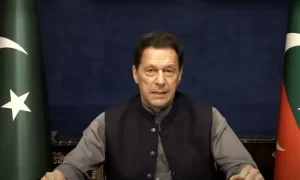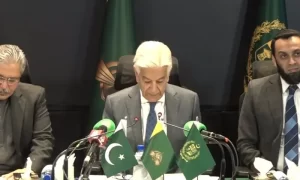
Islamabad, the 2st July, 2025 – A meeting of the Senate Standing Committee on Power was held at Parliament House, under the Chairmanship of Senator Mohsin Aziz. The meeting was attended by Senators Poonjo Bheel, Sherry Rehman, Syed Shibli Faraz, Syed Kazim ali Shah, Haji Hiidayatullah Khan and senior management from the Ministry/relevant departments.
At the outset, Senator Mohsin Aziz expressed concern over the absence of the Federal Minister, who was supposed to give detailed answers to the questions. He said we had sought details regarding IPPs and the expenditures incurred on them and establishing IPPs was an injustice. Senator Shibli Faraz stated that project costs are often exaggerated to reflect higher profits. He further remarked that no effective measures have been taken to curb the growing circular debt, and the entire burden of governmental inefficiency is being unfairly shifted onto the public. He criticized the Power Division for consistently avoiding the disclosure of actual facts. Senator Mohsin Aziz added that instead of providing answers, the Power Division claimed that the matter was being dealt with by a Task Force, despite the fact that the Task Force itself is answerable to the Power Division.
The Secretary of the Power Division informed the committee that the repayment of circular debt has been linked to the already implemented debt servicing surcharge and assured that no additional burden would be imposed on consumers. He added that the government has attempted to control the increase in circular debt by reducing electricity subsidies.
Senator Mohsin Aziz raised concerns about the excessively high rate of return granted to IPPs, emphasizing that such profits should be returned to the public. Chairman committee questioned why the excess amount had not been recovered from the IPPs. He reiterated his concerns about the Power Division’s reluctance to directly address the committee’s inquiries and continued deflection of responsibility to the Task Force.
He further questioned that despite surplus electricity availability in the country, why is load shedding still being carried out. The Secretary Power told the committee that Power losses have been reduced and efficiency has been improved. The Load shedding is being implemented in areas with high electricity theft and we are trying to bring technology down to the transformer level to curb electricity theft.
Senator Ponjo Bheel raised the issue of prolonged load shedding in Tharparkar, Matiari, and Umerkot, describing them as the most affected areas. He stated that in Umerkot, residents were facing up to 14 hours of load shedding daily. Despite paying their electricity bills, the public is still being deprived of power. He questioned why departmental action is not being taken against electricity theft. He further alleged that local officials are involved in corruption, accepting bribes for illegal connections and subsequently disconnecting meters, only to restore electricity in exchange for fixed payments. He lamented that even those paying their bills in full are left without power, while the public continues to suffer due to systemic failures.
Following detailed deliberations, the Committee expressed its displeasure over the Power Division’s failure to respond to the questions raised. The Chairman committee directed that comprehensive answers must be provided in the forthcoming meeting.
Senator Haji Hidayatullah raised the issue of an excessive electricity bill. He stated that a property he owns in Peshawar, which was previously rented out, had been declared all dues clear by PESCO. However, after the tenant vacated the property, PESCO issued a notice of outstanding dues amounting to Rs. 2.3 million, he added. Senator Hidayatullah further alleged that PESCO officials offered his manager to settle the bill for Rs. 300,000 in exchange for clearing the amount to zero. The Secretary Power Division assured the committee to look after this matter.
K-Electric officials briefed the committee that they have total 2,100 feeders out of which load shedding does not occur on 70% of these feeders. However, approximately 30% of the feeders experience load shedding due to high rates of electricity theft in those areas. Moreover, they added that consumer electricity bills have been divided into installments to facilitate payments. The Chairman Committee observed that the slab system for electricity units is very strict and proposed that it should be evaluated based on the annual average.
The Secretary Power Division informed the committee that 58% of their consumers fall under the “protected” category. He added that 58% of Pakistan’s population receives electricity at a rate of Rs. 10 per unit. The Secretary further stated that, with approval from international financial institutions, the government is set to provide Rs. 250 billion in subsidies. He also highlighted the introduction of a scheme allowing consumers to submit their own meter readings. So far, 500,000 users have downloaded the app, and around 250,000 have registered themselves on the platform.
The Chief Executive Officer, HAZECO also briefed the Committee on the estimated bills (without reading) issue to the residents of Sub-Division Lora Chowk and fault in the feeder namely Bandi Sher Khan of the said sub-division on daily basis and completion of ELR works release Nos. 46241, 51911 and 51910.





